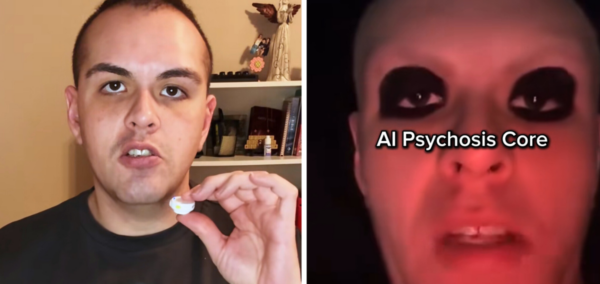
Edinburgh students left struggling following a national ADHD medication shortage
‘Not being medicated means it feels like I’m not in control and consistently turning up to uni isn’t going to happen’
The NHS announced a national shortage of medications typically used to regulate Attention Deficit Hyperactivity Disorder (ADHD), including those such as Methylphenidate, more commonly known as Ritalin.
Pharmacies across the UK have been advised to lower or even completely halt prescriptions of the medication, leaving students struggling to ration their remaining supply.
Speaking to The Edinburgh Tab, Louisa, a third year at the University of Edinburgh, described her experience of being sent on a “wild goose chase” for medication. She said: “The uni pharmacy says they won’t have any until December and the only advice they gave was to try phoning pharmacies outside the city where there are fewer people.”

A text from the University Health Centre.
Students with ADHD have reported problems with studying and mental health since the shortage – a second year student, who struggles with “overstimulation and mood disregulation” said: “Trying to balance, focus, and compartmentalise was so excruciatingly hard that it really de-motivated me and made my depression and anxiety worse, so I stopped going to class and was constantly falling behind.”
Tatyana, a second year psychology student, endured similar issues: “I had a week without the medication and I struggled to find the motivation to do anything, my brain was foggy and all over the place, which also took a toll on my mental health as I didn’t feel like myself and couldn’t think clearly.”
Students also spoke of the university’s handling of the crisis, with one saying that whilst their specific department had been helpful, the university could “take more initiative for future students, supporting them throughout the process rather than having them going through all the loopholes of figuring it out for themselves.”
Most Read
The medications on the shortage list, although known for regulating ADHD symptoms, are also used for other health conditions. One student, who suffers with narcolepsy, said: “I can’t function without medication and the uni are being very difficult. Especially with this new special circumstances system.”
Many are also struggling with the diagnosis progress itself. Caspar, a philosophy and theology student, retaking his first year due to his “struggles with concentration” and “mental health issues”, said that “in order to receive support from the university, I need to have paperwork” and added: “It’s just the backlog of everything thats affecting me, not just the shortage of medication.”
Beyond academic struggles and mental health issues, the financial toll can be painful as well; with private care often being the last resort for students.
One student commented, saying: “If you don’t have a family supporting you financially, I don’t know how you would afford a diagnosis or all the help that people often need alongside managing ADHD.”
A spokesperson for the university said: “We offer a range of support for students with an ADHD diagnosis, including helping to arrange equipment, specialist software and specialist study support, to ensure that they will not be disadvantaged during their time here. We will also work flexibly with a student if they think they may have ADHD and where they have no other evidence. A referral letter from their GP confirming onward referral for diagnostic assessment can be enough for us to provide support.”
Further info can be found here.


















